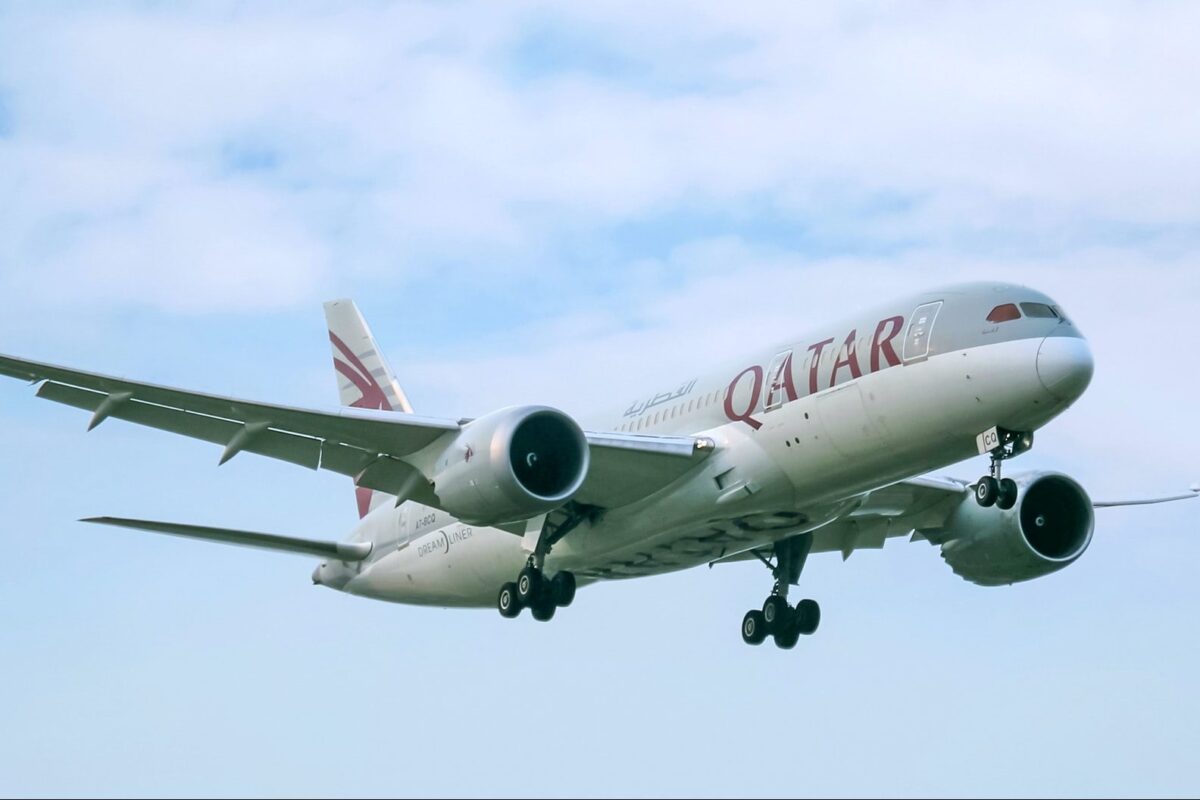TripActions Brings in Silicon Valley Heavyweight to Lead $154 Million Investment Round

Skift Take
Silicon Valley stalwart Andreessen Horowitz has led a $154 million Series C investment round in TripActions, a corporate travel startup based in Palo Alto.
Andreessen Horowitz, a top-tier venture capital firm that has backed companies like Airbnb and Lyft, joined repeat investors Lightspeed Venture Partners, Zeev Ventures, and SGVC in the round.
TripActions has raised $231 million to date. The latest round placed a billion-dollar valuation on the company.
The deal reflected heightened activity in the sector, where the lines between corporate booking tools, mobile trip-planning apps, and travel-and-expense management tools increasingly blur.
TripActions competitors include TravelPerk, a Barcelona-based company that last month raised a $44 million Series C round. Like TripActions, it claims 700 percent growth, year-on-year, in revenue.
Last year, Baoku, a Beijing-based corporate travel management startup that had raised about $10 million, was acquired by Shiji, the hotel tech giant backed by Alibaba Group.
Earlier this year, in the adjacent category of expense management, Chrome River, a maker of expense reporting software, closed a $35 million Series D funding round. Last year Rydoo, an Antwerp-based travel and expense management startup that had raised $9.5 million, was acquired by Sodexo, the food-service enterprise titan.
Some Sector Skepticism
Whether the prospects for TripActions and its competitors are dull or bright depends on whether you talk to insiders or outsiders in corporate travel.
Long-time corporate travel professionals we spoke with were skeptical that the new players could gain significant long-term traction at stealing business from established travel management companies.
Business travel has been a relatively sleepy travel sector populated by a mix of travel management companies of various sizes that have embraced digitization to varying extents. Given the layers of complexity in the market and the narrow profit margins in the mid-market, a few long-time industry observers said they were skeptical about some of the startups aiming to disrupt the sector.
Speaking anonymously, they pointed to business travel startups that have stumbled. Tech-focused, heavily-funded companies like Deem, Lola, and Upside have struggled to live up to their early promise in business travel though they have had some wins. This summer Lola pivoted to travel management from a direct-to-consumer pitch. Upside has quieted down since its early 2017 fundraising of $50 million. Deem, which has raised hundreds of millions, continued this year to adjust course.
Cheap money may be one factor explaining the size of TripActions's, TravelPerk's, and other startups's recent funding rounds. Low interest rates and high savings rates have led to a global pile-up of cash that is chasing a set of investment opportunities that keeps diminishing as the economic cycles in the U.S. and Europe peak. An estimated $1 trillion of private equity, venture, and growth capital in the world is available for investment.
Skeptics said off the record that ample liquidity partly explains why travel startup funding rounds, in general, have been fatter in the past two years than the average across the past decade. They argue the valuations placed on these companies don't properly reflect the underlying potential of the companies themselves.
Business Travel Ripe for Disruption
Insiders may scoff. However, observers looking at the business travel sector from a relative distance said they had high hopes for the latest wave of startups, though without handicapping the prospects of any individual company.
SAP’s acquisition of travel-and-expense management leader Concur for $8 billion in 2014 proved to several investors that there were profitable opportunities to be had by investing in players using tech to wring efficiencies out of corporate travel.
"Beyond the pure administrative and business process benefits of travel management platforms, shifting in-destination corporate traveler behavior opens a vast new pool of traveler demand," said Eric Lawson-Smith, a partner at Arma Partners, a mergers and acquisitions advisory firm.
"We are convinced that not only pure SaaS [software-as-a-service] players, but also those with volumetric models (platform fee plus revenue related to bookings), will be highly sought after," Lawson-Smith said. "At a strategic level, the space is important because it will bring the big travel groups into head-to-head competition with the likes of SAP and others over time."
Another driver of promising growth is machine learning, a data science field that does a superior job of pinpointing patterns in data and making predictions. If startups can be quicker and smarter about applying machine learning to various parts of business travel, they could make gains against slower moving established players.
“If there is one thing that you can count on in travel, it is the availability of large and disjointed data silos that don’t really lend themselves to traditional computing approaches," said Balaji Krishnamurthy, vice president of strategy, planning, and corporate development for Sabre Hospitality Solutions. "Thanks to the democratization of machine learning technologies, these large data sets can be analyzed and valuable insights can be formed, resulting in the creation of smart apps at a scale and scope that was previously just not viable.”
New user behavior thanks to the widespread adoption of mobile devices and chat-based communication enables companies to have more engagement with business travelers than before.
"With that engagement comes an opportunity to enhance the travel experience through cross-sell and upsell," said Alex Dichter, a senior partner at consulting firm McKinsey & Company. "There’s a lot of money there."
TripActions Growth
Not much has changed in TripActions's business plan since its Series B round in March.
Ariel Cohen, CEO of TripActions, dismisses talk of "cheap money" as a factor in the size of its funding rounds this year.
"I don't think raising money is easy no matter which investing environment you're in," Cohen said. "Investors want to look at fundamentals of growth, margins, and total market size."
TripActions said it has 93 percent online usage by its users at its client companies. It said that implies a significant gain in compliance over the average, which it said implies cost savings for companies.
"You may search for 20 minutes in Concur and not find the travel option you particularly want, and then you'll spend an hour back-and-forth with the agent by phone and email. It's not entirely a software-powered process, like ordering an Uber."
TripAction does offer agents via text chat and phone support, but tries to resolve as many issues online first, Cohen said.
TripActions said it is more successful with compliance because its mobile tool is easier to use and has a broader array of content than the typical corporate booking tool — though to be clear, TripActions doesn't yet offer a full replacement to the corporate booking tools widely used by large enterprises in the market and it has tended to be adopted by small and mid-market sized companies.
Machine learning has given the company an edge, said chief technology officer Ilan Twig.
TripActions first used machine learning to predict with about 90 percent accuracy whether a user will book or not within half-minute of their first search, Twig said. If a customer is hesitating, the company's app can provide relevant prompts that are targeted to overcome likely objections and persuade a customer to book after all.
Underlying sector growth rates are also attractive to investors and could provide a tailwind for business travel startups.
"Where else can you invest and get a built-in 5-plus-percent underlying annual growth rate?" said Dichter, referring to both business and leisure travel.
Size matters. Often venture capital believes that "overfunding" a player gives them a market share power that creates a virtuous cycle of cost-control benefits when competing with rivals. For instance, the significant funding amount may help TripActions move faster than less-well-funded rivals, such as smaller companies in the sector with overlapping services such as Berlin-based Comtravo, which has raised about $9 million to date.
The latest funding round will help TripActions spread globally at a quicker clip. In October the company opened an office in Sydney, and in the summer it opened one in London. To support its a global scale-up, it is investing in how it handles various payment methods and point-of-sale interfaces.
Andreessen Horowitz has famously pushed the notion that "software is eating the world." Given that fund co-founder Ben Horowitz will join TripActions's board, it seems likely the firm believes software is going to eat business travel.
Correction: This article originally said, "Corporate road warriors book roughly 50 percent business trips outside of company policy, according to a survey by the Global Business Travel Association." We took TripActions at its word but we have since been unable to find a study persuasively fitting that description. For more on this topic, see the Company Dime.





